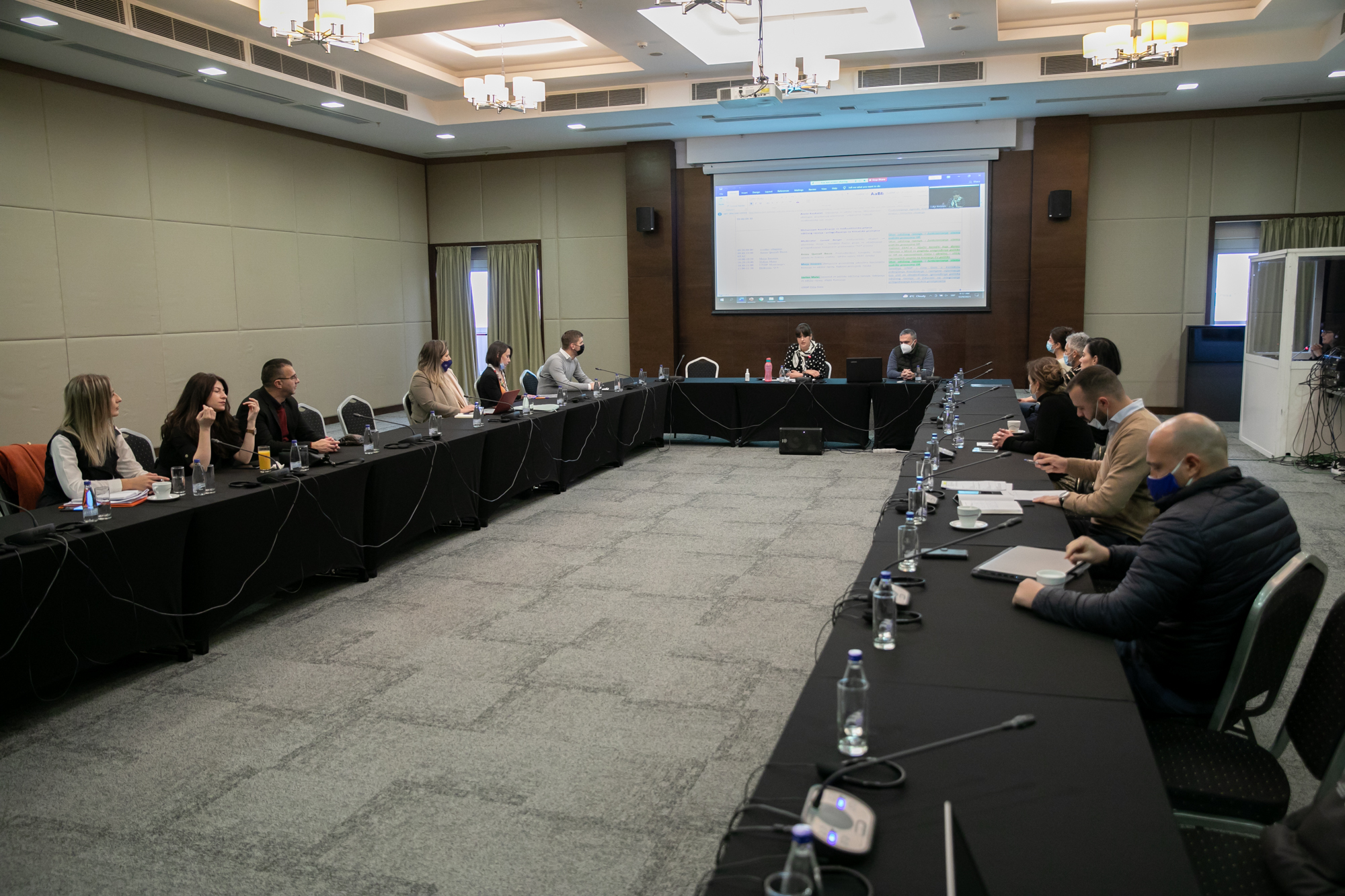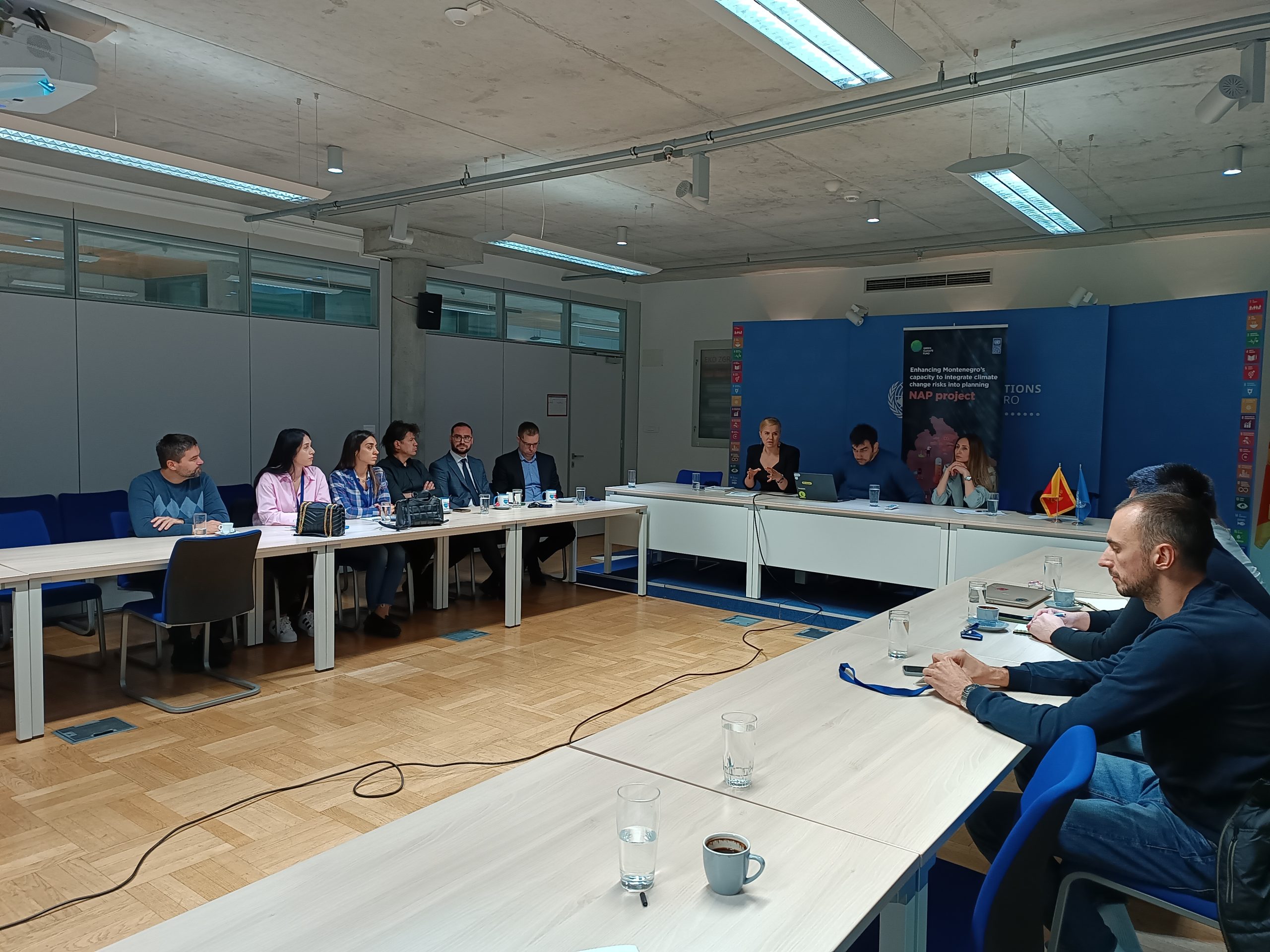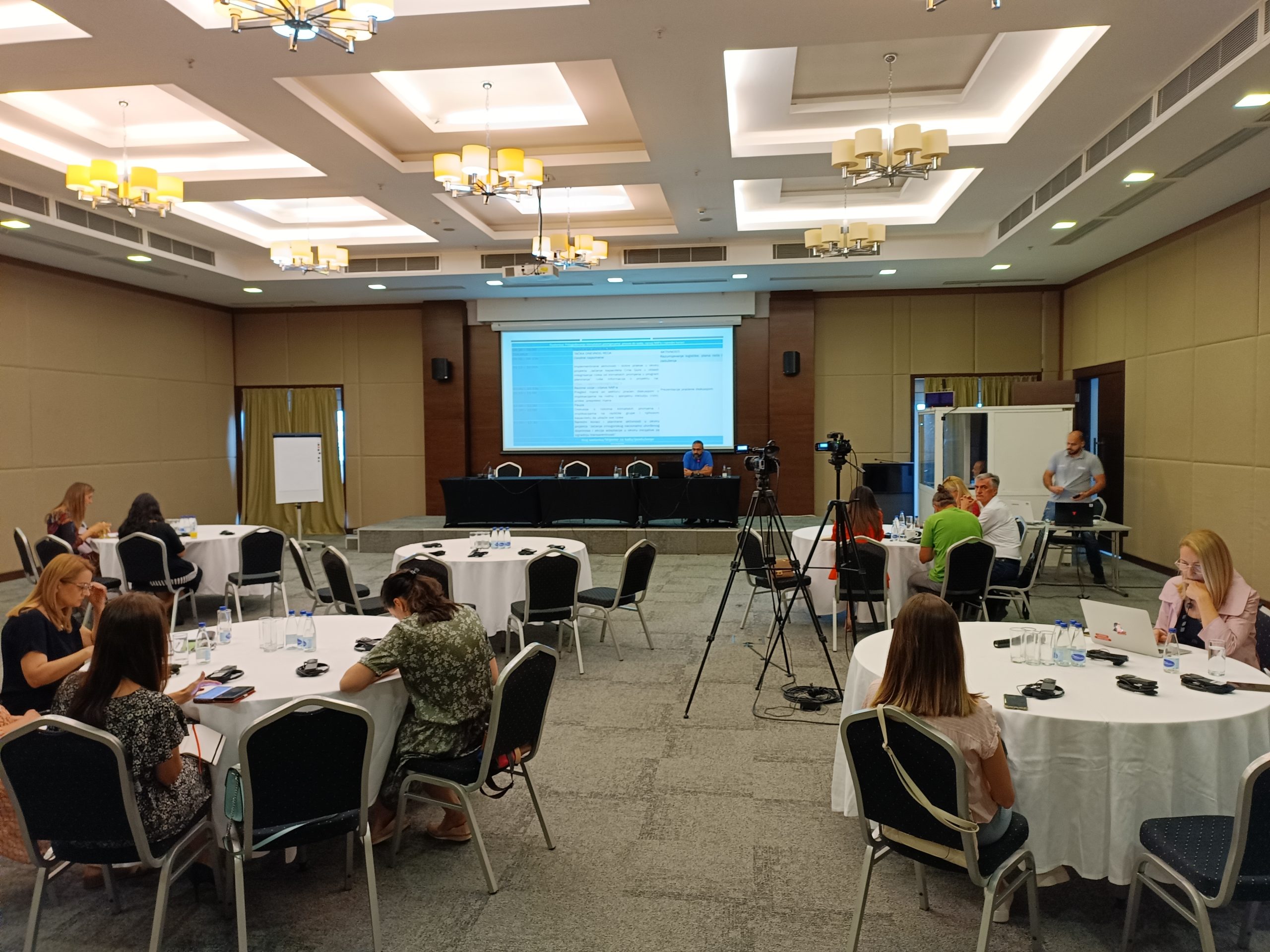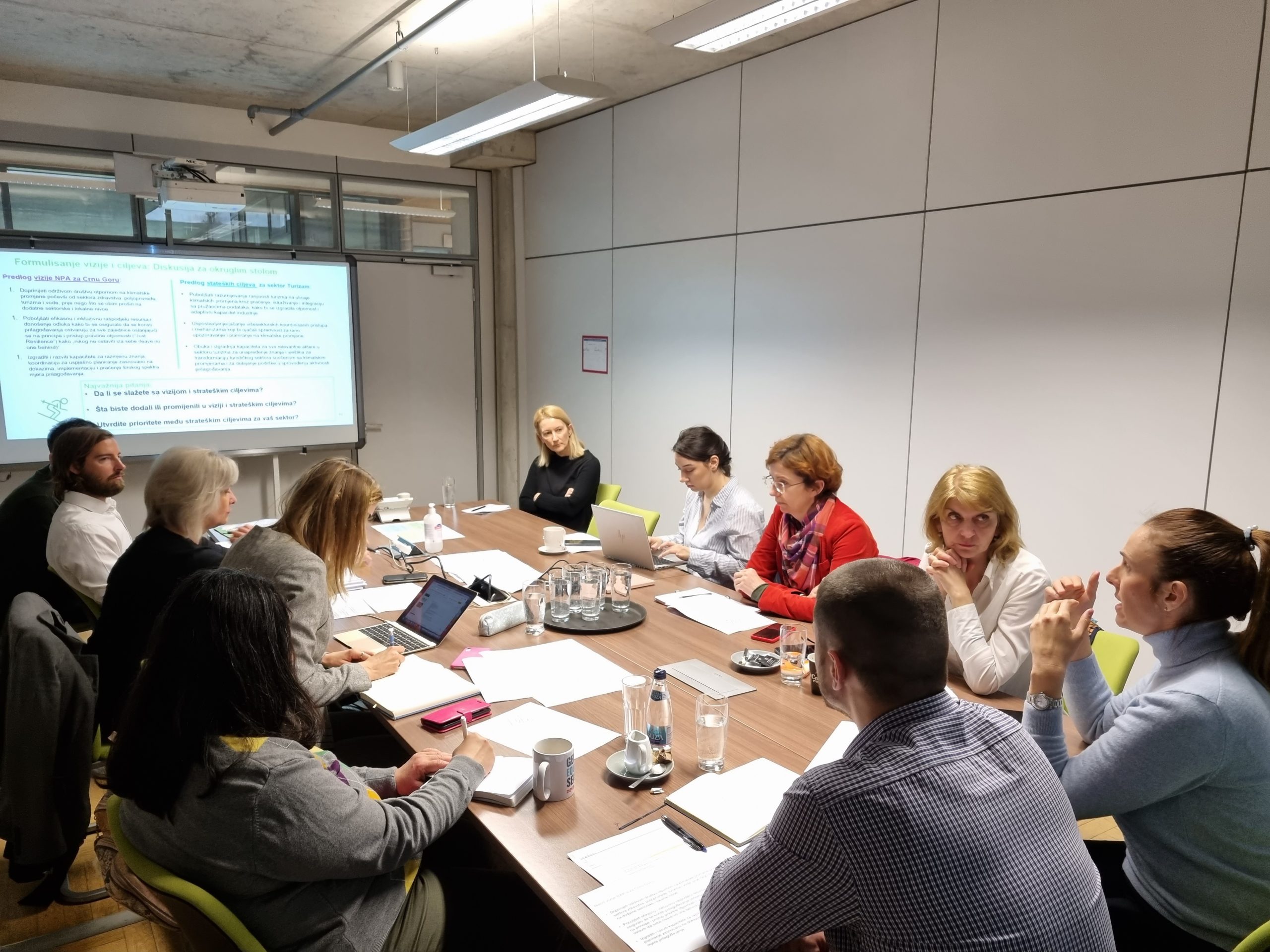A workshop on the topic: “Improved coordination and exchange of information as a tool for ensuring the implementation of sustainable development policies, with a focus on mainstreaming climate change adaptation” was organized on 9 December 2021 within the NAP project. The focus of the workshop was on ways to enhance the institutional framework for sustainable development. By enhancing the institutional framework for sustainable development, as well as adaptation planning and programming framework at the national and sectoral level, Montenegro will be able to identify risks and vulnerabilities caused by climate and climate change, use that information in the adaptation planning process and explore potential responses.
The previous operating practices of the Sustainable Development Office at the General Secretariat of the Government (2005-2011) were discussed during the workshop, and examples of good practice in many EU member states, such as Finland and Romania, were shared. Also, based on the recommendations arising from Montenegro’s international commitments, as well as obligations at the national level, the participants had the opportunity to discuss the reform of the sustainable development institutional framework, i.e. the reform of the National Sustainable Development Council and the positioning of the Secretariat of this Council within the General Secretariat of the Government. This arrangement would ensure the horizontal positioning of the National Council in relation to the departments responsible for implementation of sectoral policies, as well as the strong political support necessary for the implementation of systemic changes in accordance with the constitutional definition of ecological Montenegro.
In order to provide the best possible response to the challenges that lie ahead of us, it is clear that in the beginning the focus must be on the development and improvement of the coordination framework, primarily the framework in which the National Sustainable Development Council operates, in the area of climate change mitigation and adaptation and enhancement of capacities of those who are included in the coordination framework. As the coordination framework gets stronger, measures will be taken to improve the database by identifying climate risks and by using them as a basis to determine and assess proper measures (investments, projects, programmes, etc.).
In addition to the existing institutional mechanisms, the discussion on improving the sustainable development institutional framework covered the use of good practices in processes in Montenegro and the identification of key actors for implementation of these processes, as well as ways to ensure their dedicated and professional attitude and performance.
The foundations will thus be laid for systemic and iterative adaptation planning through identification of climate risks and adaptation opportunities in order to establish a well-defined planning process that will lead to improved growth of resilience in the four key sectors defined by this project – agriculture, water, tourism and health. This strategic approach will, among other things, strengthen the position of Montenegro in relation to its development partners, international funding sources and the private sector.
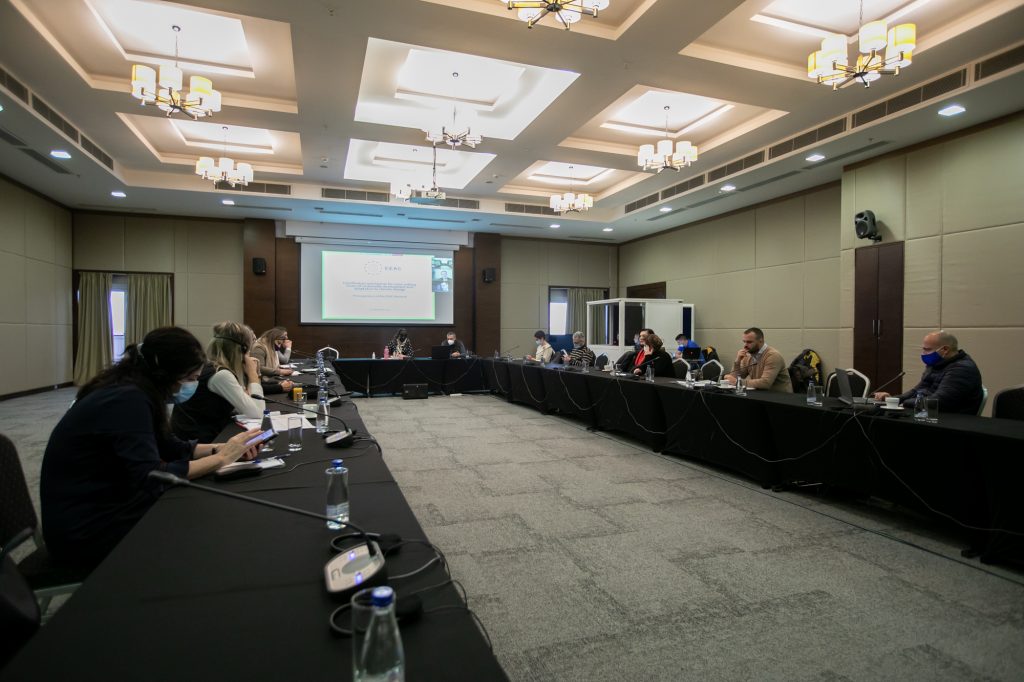
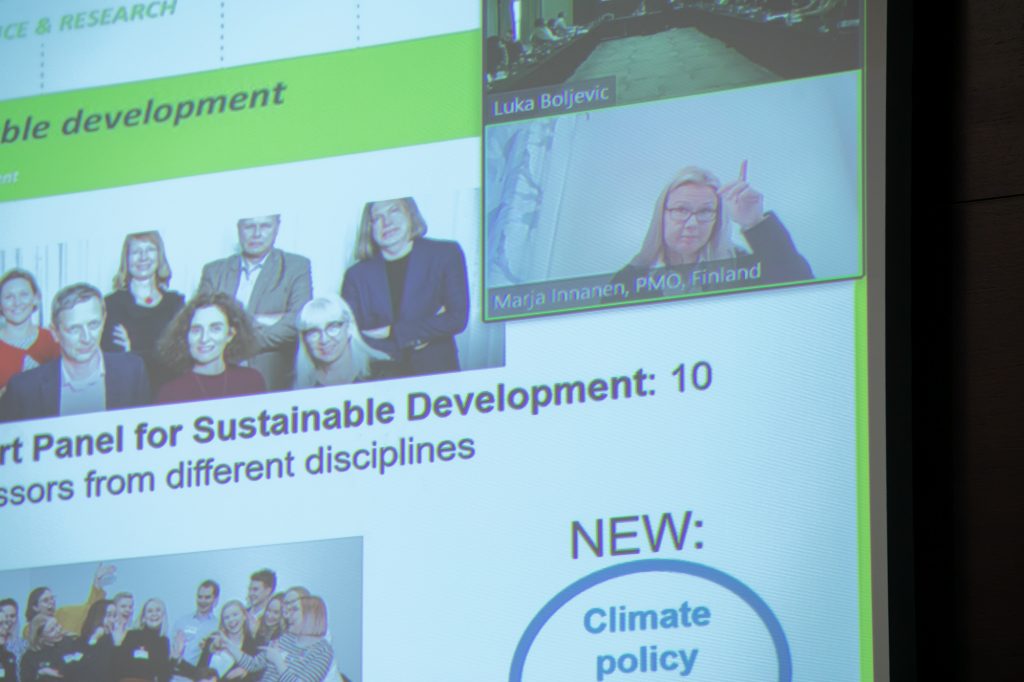
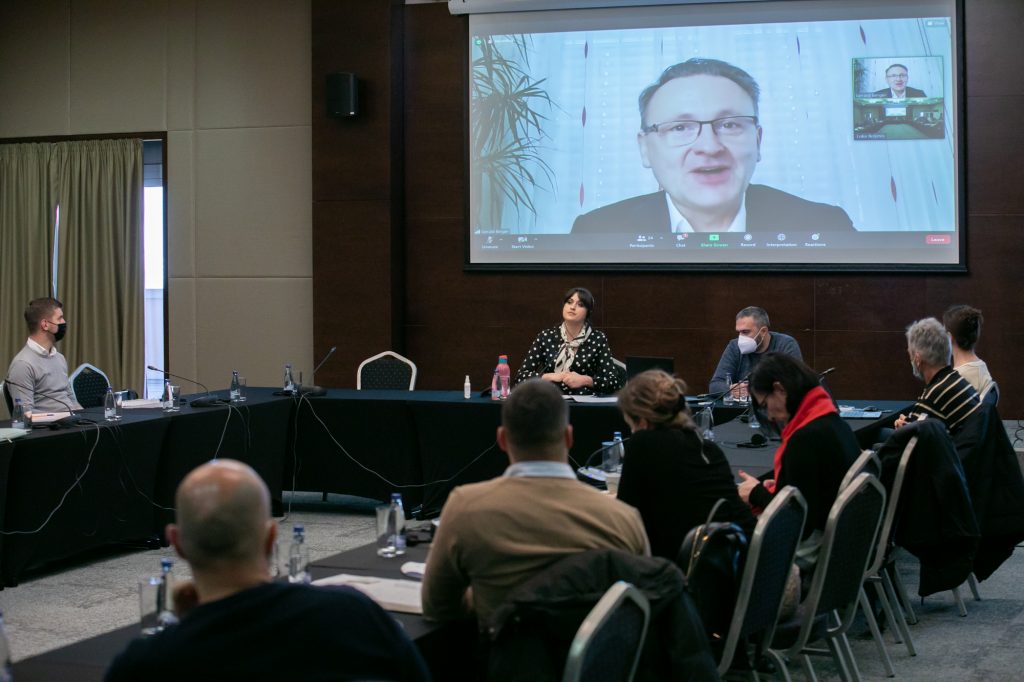
 Back to previous page
Back to previous page